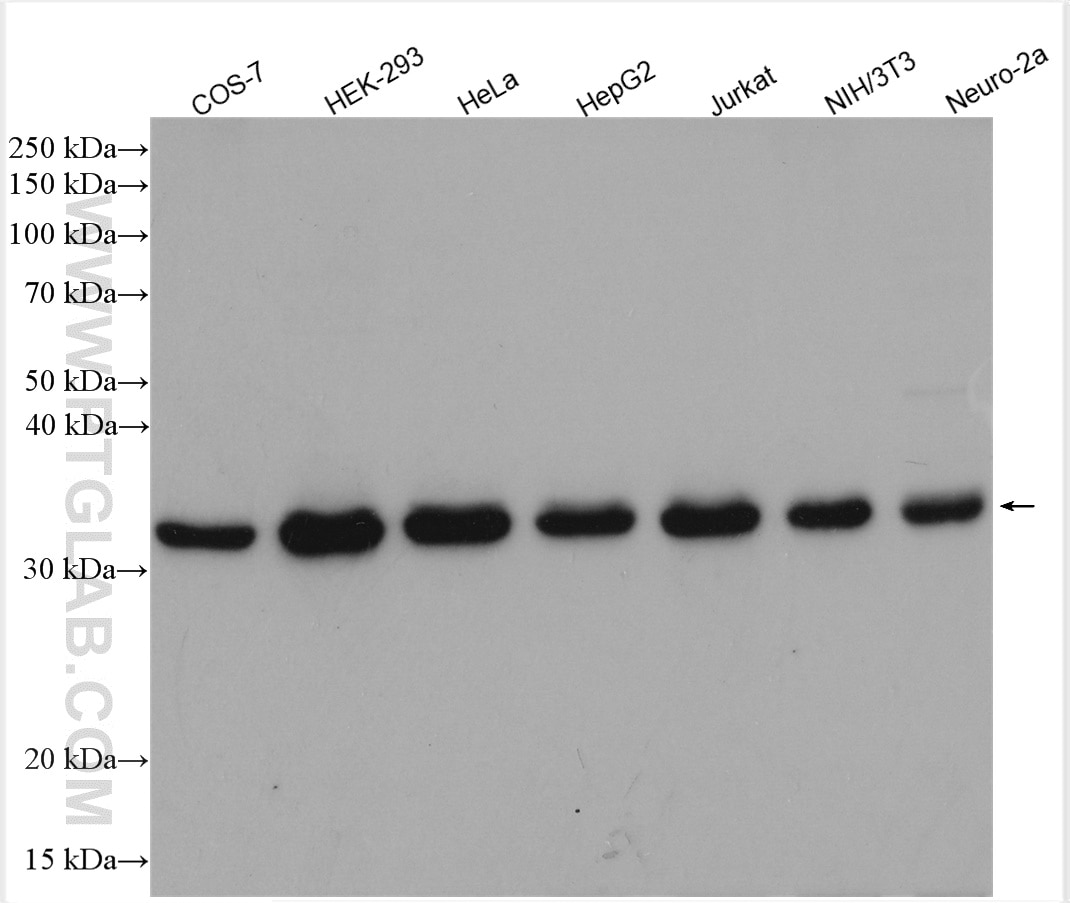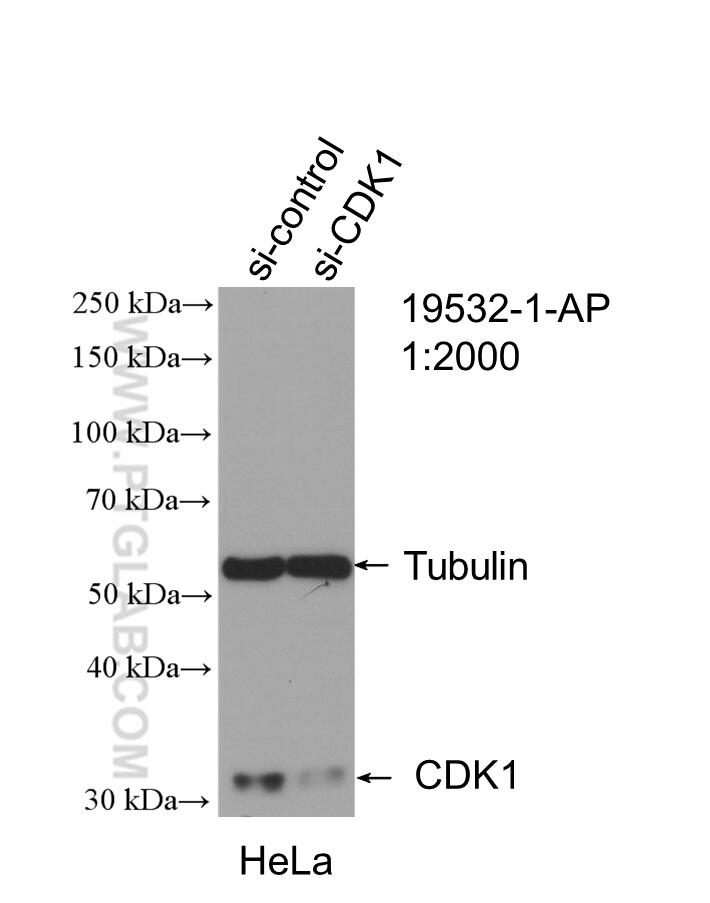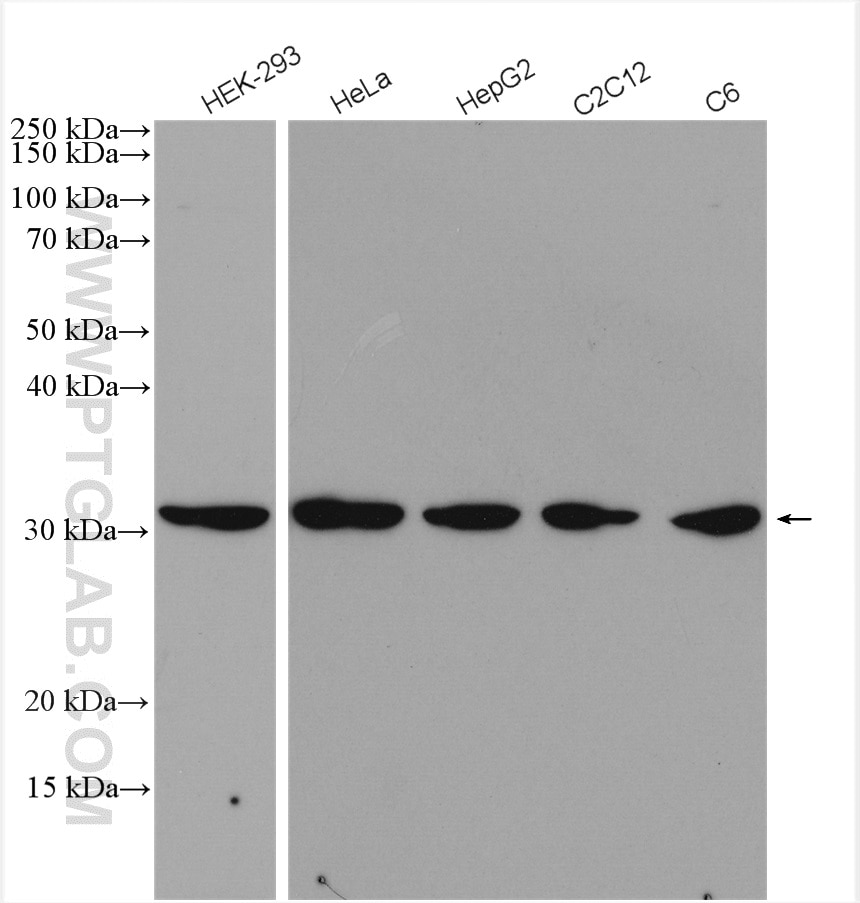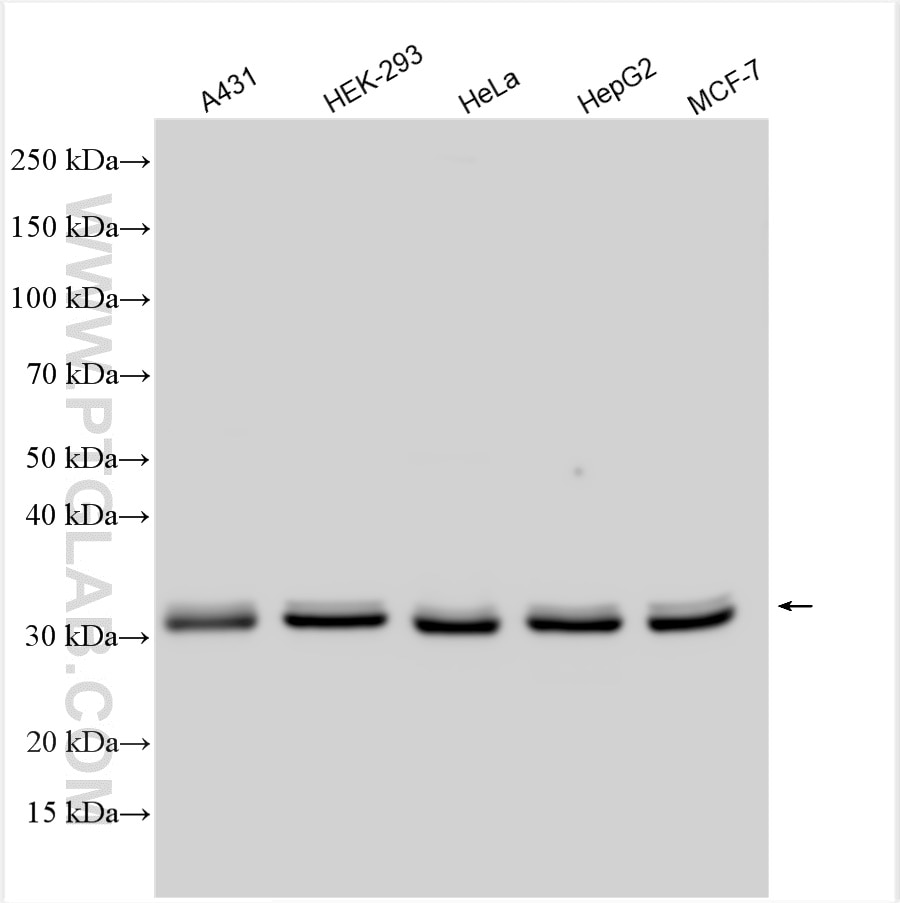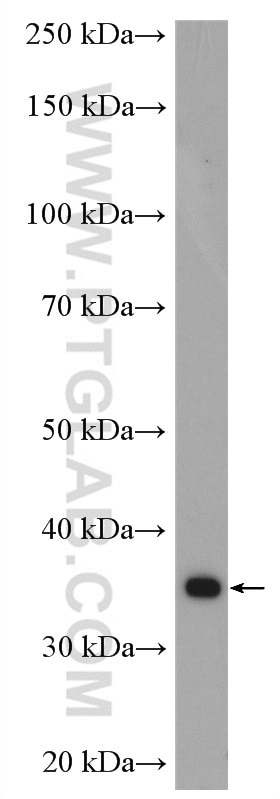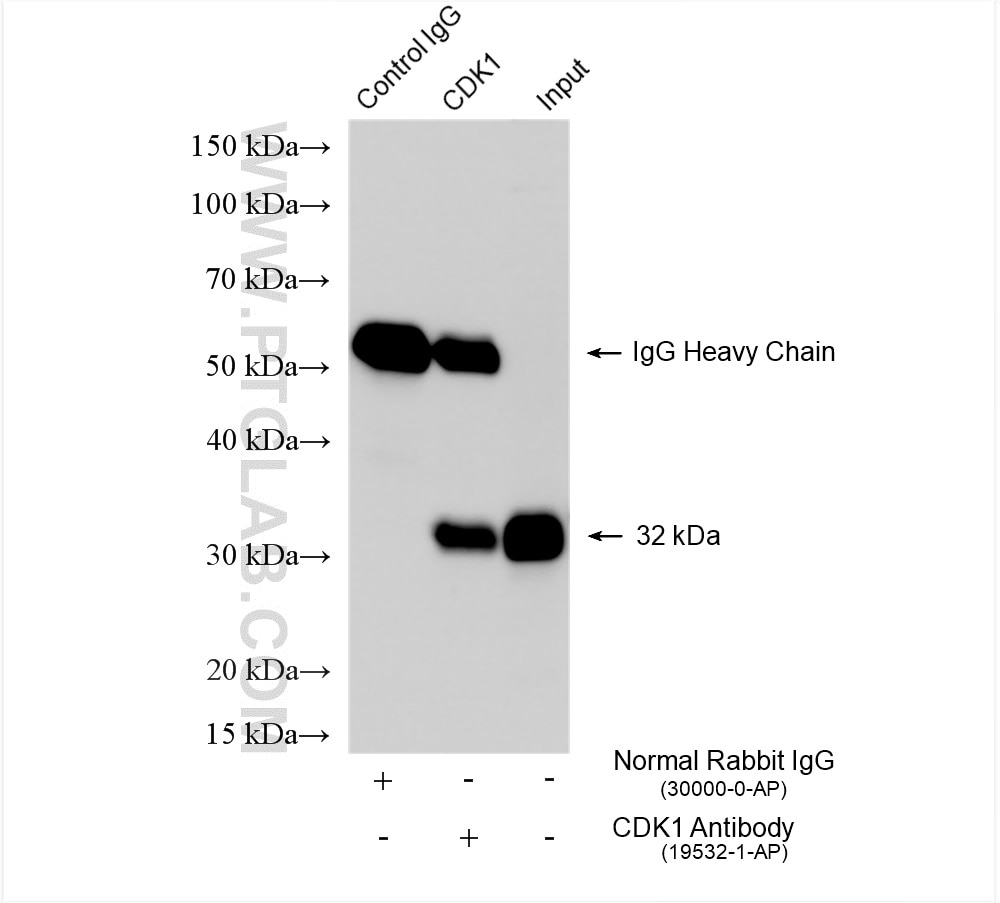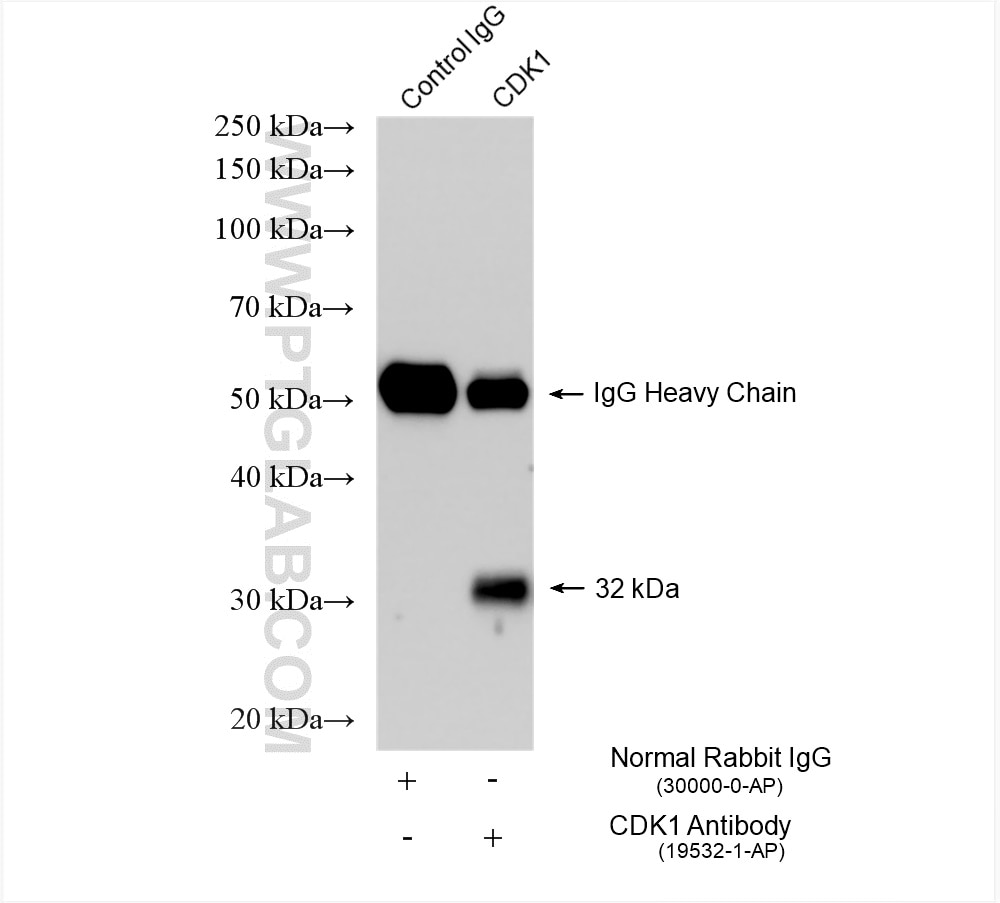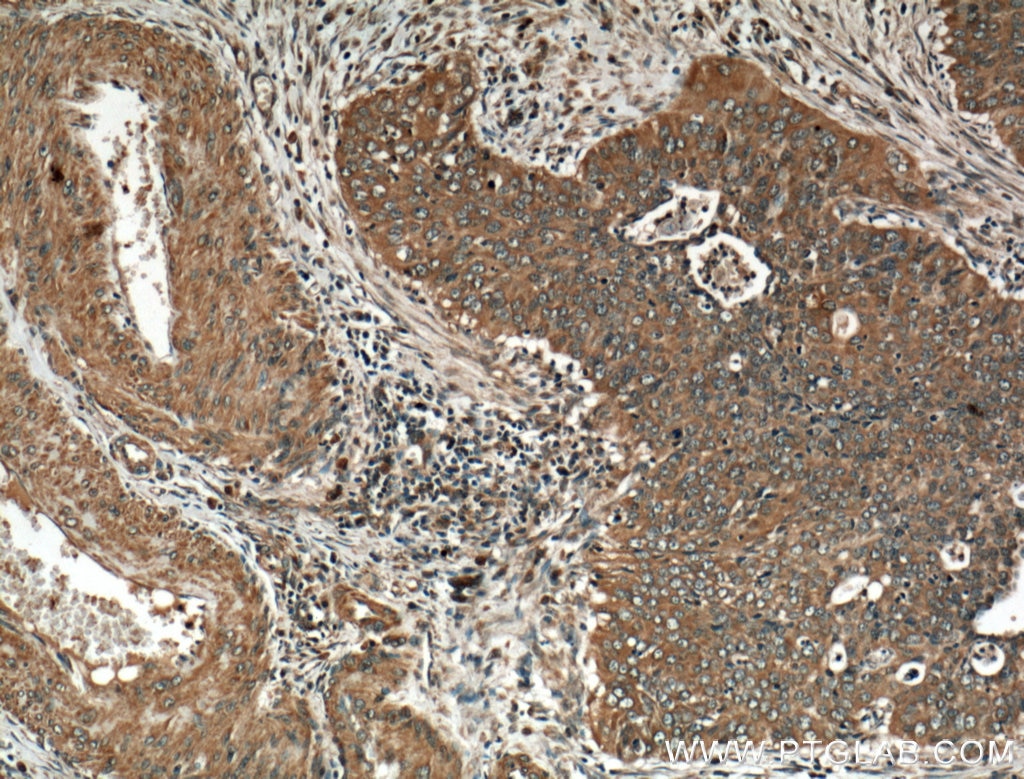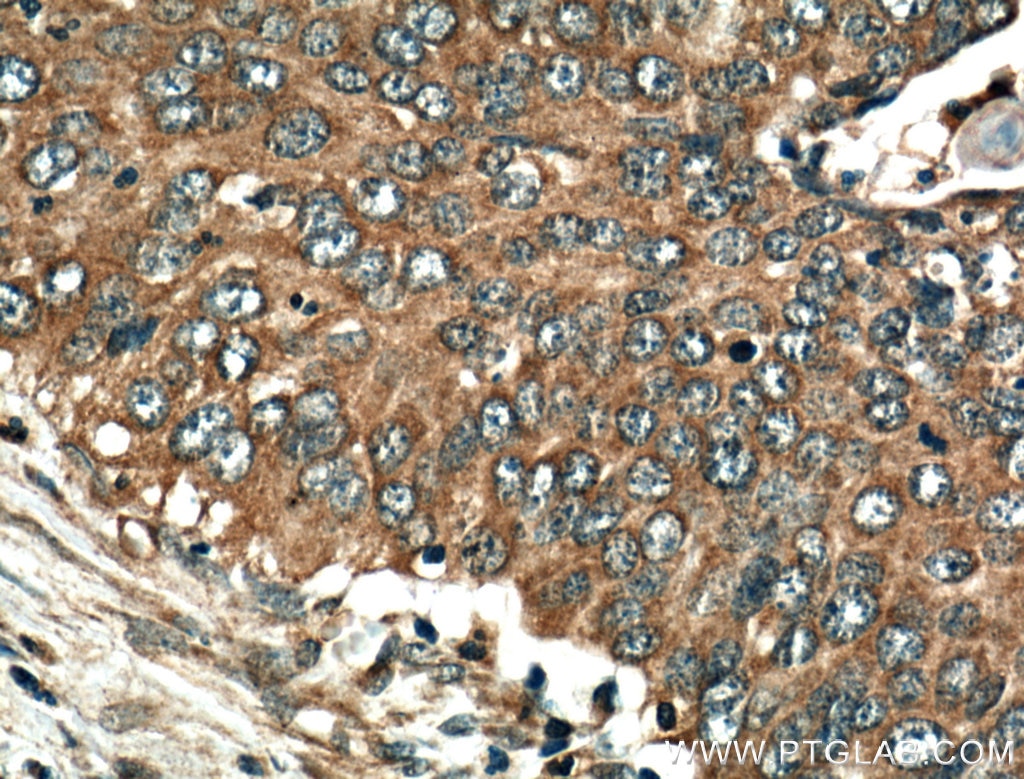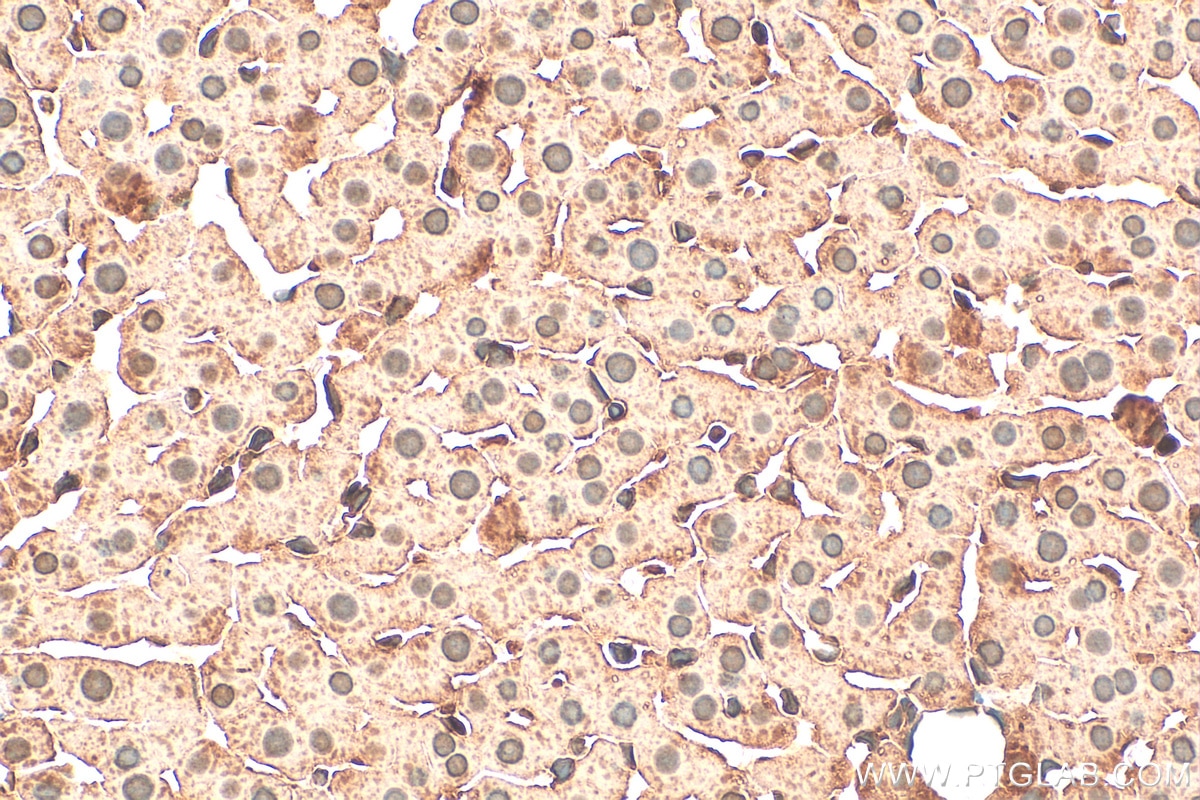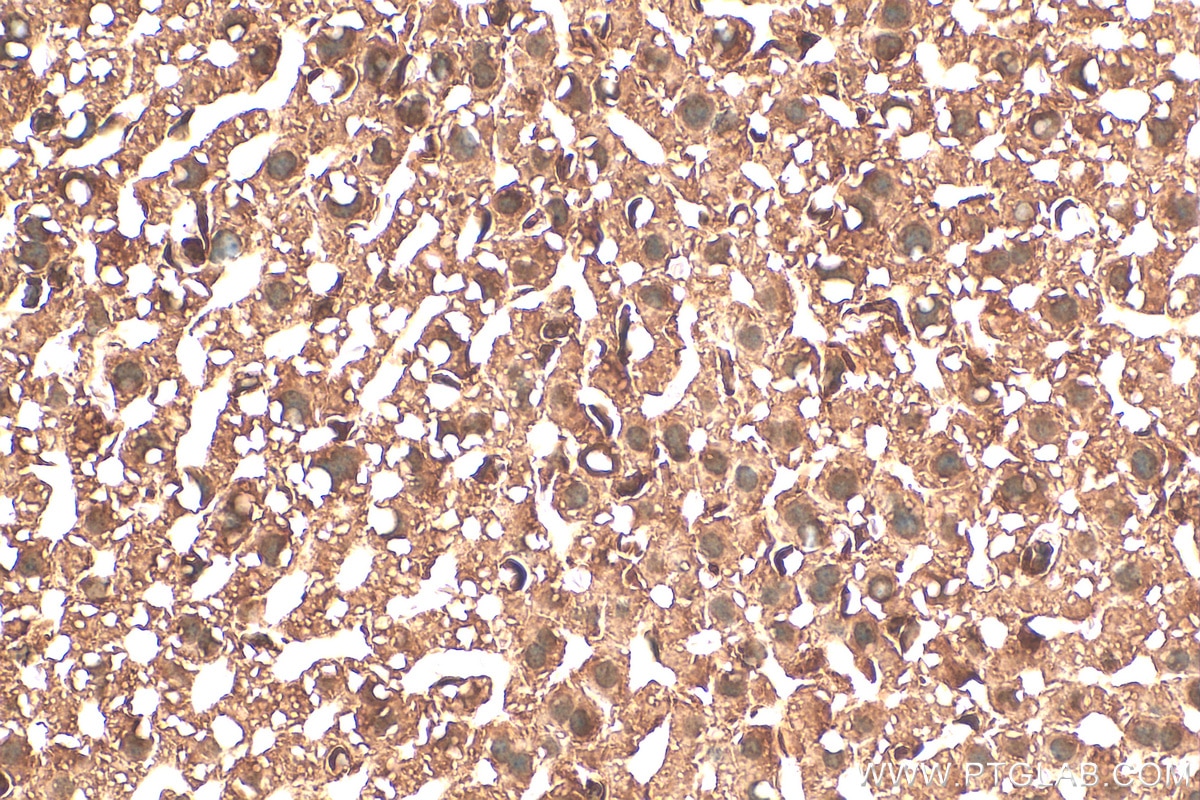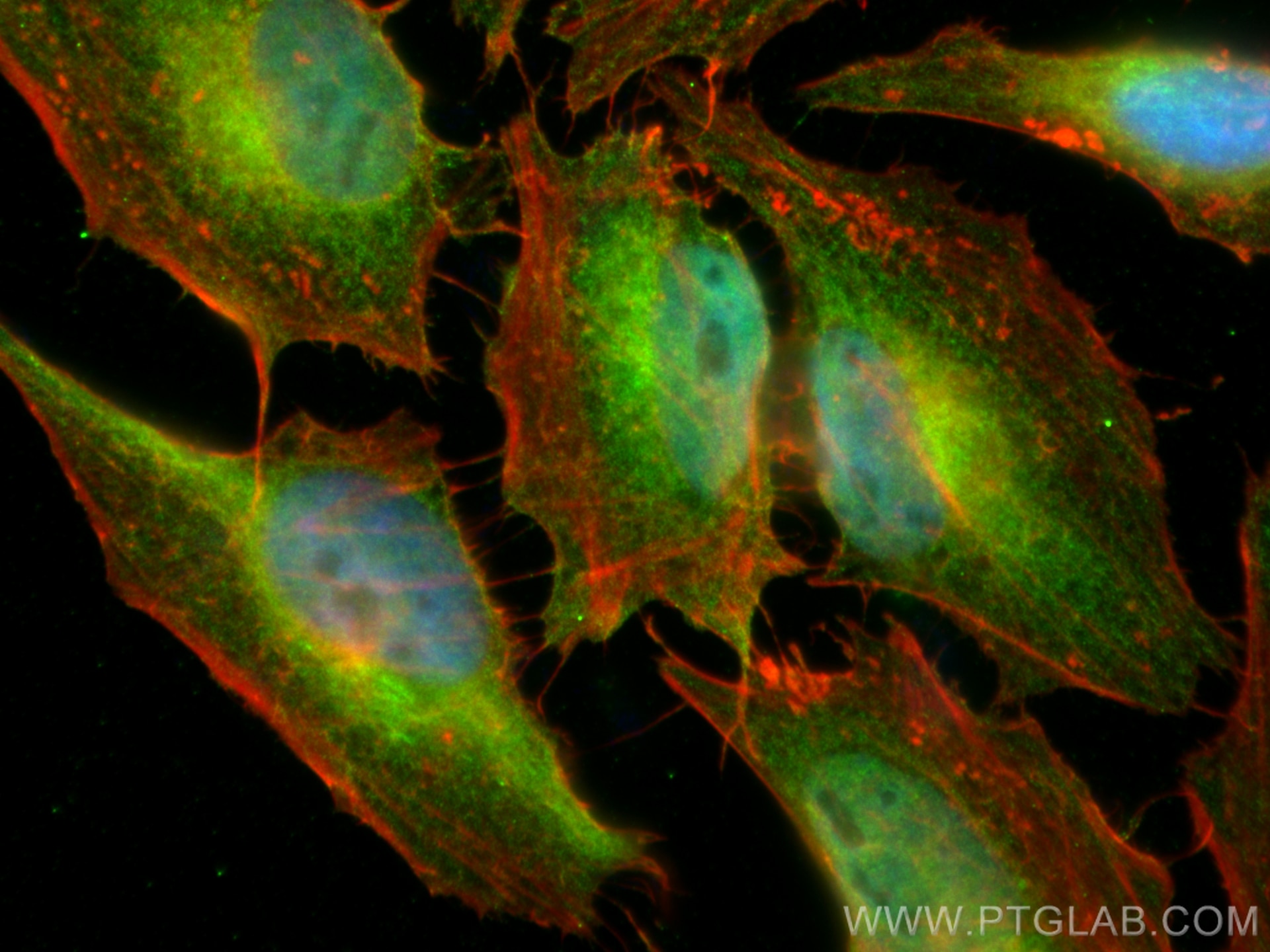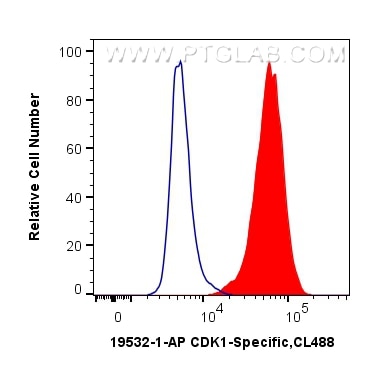Tested Applications
| Positive WB detected in | A431 cells, HeLa cells, HEK-293 cells, COS-7 cells, HepG2 cells, C2C12 cells, C6 cells, Jurkat cells, NIH/3T3 cells, Neuro-2a cells, MCF-7 cells |
| Positive IP detected in | HeLa cells, HEK-293 cells |
| Positive IHC detected in | human cervical cancer tissue, mouse liver tissue, rat liver tissue Note: suggested antigen retrieval with TE buffer pH 9.0; (*) Alternatively, antigen retrieval may be performed with citrate buffer pH 6.0 |
| Positive IF/ICC detected in | HeLa cells |
| Positive FC (Intra) detected in | HeLa cells |
Recommended dilution
| Application | Dilution |
|---|---|
| Western Blot (WB) | WB : 1:2000-1:10000 |
| Immunoprecipitation (IP) | IP : 0.5-4.0 ug for 1.0-3.0 mg of total protein lysate |
| Immunohistochemistry (IHC) | IHC : 1:100-1:400 |
| Immunofluorescence (IF)/ICC | IF/ICC : 1:200-1:800 |
| Flow Cytometry (FC) (INTRA) | FC (INTRA) : 0.40 ug per 10^6 cells in a 100 µl suspension |
| It is recommended that this reagent should be titrated in each testing system to obtain optimal results. | |
| Sample-dependent, Check data in validation data gallery. | |
Published Applications
| KD/KO | See 7 publications below |
| WB | See 218 publications below |
| IHC | See 24 publications below |
| IF | See 10 publications below |
| IP | See 1 publications below |
| ChIP | See 1 publications below |
Product Information
19532-1-AP targets CDK1 in WB, IHC, IF/ICC, FC (Intra), IP, ChIP, ELISA applications and shows reactivity with human, mouse, rat, monkey samples.
| Tested Reactivity | human, mouse, rat, monkey |
| Cited Reactivity | human, mouse, rat, pig, chicken, sheep |
| Host / Isotype | Rabbit / IgG |
| Class | Polyclonal |
| Type | Antibody |
| Immunogen | Peptide Predict reactive species |
| Full Name | cell division cycle 2, G1 to S and G2 to M |
| Calculated Molecular Weight | 34 kDa |
| Observed Molecular Weight | 30-34 kDa |
| GenBank Accession Number | NM_001786 |
| Gene Symbol | CDK1 |
| Gene ID (NCBI) | 983 |
| RRID | AB_10638617 |
| Conjugate | Unconjugated |
| Form | Liquid |
| Purification Method | Antigen affinity purification |
| UNIPROT ID | P06493 |
| Storage Buffer | PBS with 0.02% sodium azide and 50% glycerol, pH 7.3. |
| Storage Conditions | Store at -20°C. Stable for one year after shipment. Aliquoting is unnecessary for -20oC storage. 20ul sizes contain 0.1% BSA. |
Background Information
CDK1, also named as CDC2, belongs to the protein kinase superfamily, CMGC Ser/Thr protein kinase family and CDC2/CDKX subfamily. CDK1 plays a key role in the control of the eukaryotic cell cycle. It is required in higher cells for entry into S-phase and mitosis. CDK1 is a catalytic subunit of the highly conserved protein kinase complex known as M-phase promoting factor (MPF), which is essential for G1/S and G2/M phase transitions of eukaryotic cell cycle. It is a component of the kinase complex that phosphorylates the repetitive C-terminus of RNA polymerase II. Mitotic cyclins stably associate with CDK1 and function as regulatory subunits. CDK1 has 2 isoforms produced by alternative splicing with the molecular mass of 34 kDa and 27 kDa.
Protocols
| Product Specific Protocols | |
|---|---|
| WB protocol for CDK1 antibody 19532-1-AP | Download protocol |
| IHC protocol for CDK1 antibody 19532-1-AP | Download protocol |
| IF protocol for CDK1 antibody 19532-1-AP | Download protocol |
| IP protocol for CDK1 antibody 19532-1-AP | Download protocol |
| Standard Protocols | |
|---|---|
| Click here to view our Standard Protocols |
Publications
| Species | Application | Title |
|---|---|---|
Signal Transduct Target Ther SARS-CoV-2 hijacks cellular kinase CDK2 to promote viral RNA synthesis
| ||
Nat Cell Biol Caspase-2 is a condensate-mediated deubiquitinase in protein quality control | ||
Cell Res Single-cell RNA-seq highlights intra-tumoral heterogeneity and malignant progression in pancreatic ductal adenocarcinoma. | ||
Nat Struct Mol Biol Aurora kinase A-mediated phosphorylation triggers structural alteration of Rab1A to enhance ER complexity during mitosis | ||
Nat Commun Stabilization of Pin1 by USP34 promotes Ubc9 isomerization and protein sumoylation in glioma stem cells | ||
